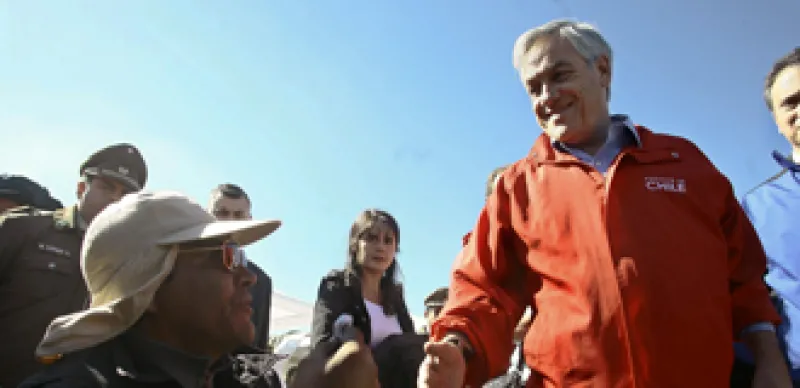
A picture dated 14 August 2010 shows Chilean President Sebastian Pinera visits today relatives outside a collapsed mine where about 33 miners are trapped in Copiapo, Chile. Rescue Chilean miners will take months and death seems inevitable rescuers. Possible contact with Chilean miners was delayed until Monday. Photo: Geraldo Caso/dpa (Newscom TagID: dpaphotos291075) [Photo via Newscom]
Geraldo Caso/picture-alliance / dpa/Newscom

